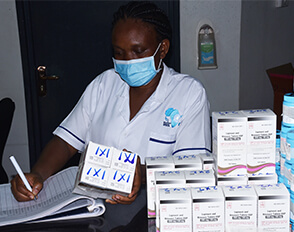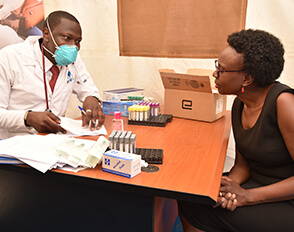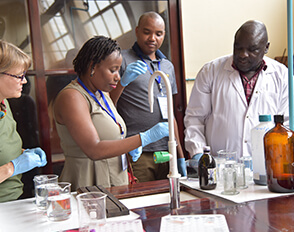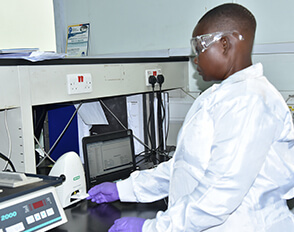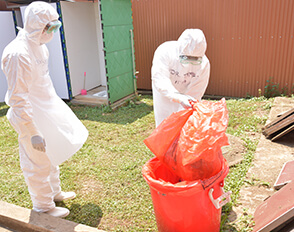
What We Do
A strong Emergency Care System improves patient outcomes and reduces death. The need for a well-structured, functional, and responsive Emergency care system has never been more glaring than during the COVID-19 pandemic. Despite its key role in saving lives, supporting the safe evacuation of patients with time-sensitive conditions from communities and between facilities has been a key challenge in Uganda.
IDI, with funding from CDC, seeks to support the country’s efforts to streamline response to emergencies at pre-hospital and hospital levels for COVID-19 and other conditions through three key emergency care principles: coordination, clinical care and better documentation to inform quality improvement.
These efforts have focused on:
- Improving regionalized Emergency Care coordination from pre-hospital to facility-based emergency care.
- Training and equipping the Health Care Workforce to effectively triage, provide basic emergency care, and make appropriate referrals
- Continuous review of emergency care data for quality improvement.
Key Achievements;
- 6 Regional Emergency Coordinators deployed to support decentralized coordination of emergencies in the regions of Greater Kampala and Metropolitan Area, Jinja, Mbale, Fort Portal, Arua, and Lira.
- Adoption of the Uganda Triage and Treatment Algorithm (UTAT)
- The EMS training curriculum was developed and utilized to train 544 Health Care Workers from 14 health regions across the country. This was done in collaboration with other partners including Mwalimu, Seed Global, and Makerere University.
- Supplied 175 Triage Kits that consisted Bp Machines, Pulse Oximeters, Thermometers, and Stethoscopes to aid in quick recognition and prioritization of critical patients. Emergency protocols like the Uganda Triage and Treatment Algorithm (UTAT) triage charts, medical and surgical checklists and emergency unit labels were provided to guide the management of critical patients.
- Over 7565 critical patients with COVID-19 and other time-sensitive conditions have been evacuated in the project-supported regions averting possible mortality.
Success Stories

